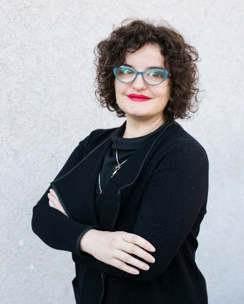Expert’s take: The COVID-19 pandemic highlighted the vital role of women’s organizations in our societies
Date:
About the author

Megi Llubani is a Technical Project Analyst with UN Women’s regional programme on ending violence against women “Implementing Norms, Changing Minds,” funded by the European Union. Prior to joining UN Women, Llubani was National Community Safety Officer at the OSCE Presence in Albania, where she was in charge of the portfolio covering countering violent extremism, women and security, and community safety in Albania. She holds a degree in Public Policy from the Texas A&M University.
As we grapple with many unknowns of the ongoing health crisis, one long established truth is surfacing: Women’s civil society organizations are playing a vital role to empower, protect and inform women and girls. Their ongoing feminist efforts, even in abnormal times such as these, stimulate and encourage collaboration needed to transform society and continue to push towards systemic change.
The COVID-19 pandemic has disrupted the lives of people across the globe. While the social and economic insecurities triggered by the emergency are felt by both women and men, pre-existing discrimination and inequalities put women and girls at greater risks of further marginalization, both in the short and long term. And nowhere else are these vulnerabilities manifested more prominently than in the phenomenon of violence against women.
Prior to the pandemic, the prevalence of violence against women was already very high, with 1 in 3 women worldwide having experienced physical or sexual violence at some point in their lives. Since the outbreak of the pandemic, many countries seeing as much as a 30 per cent increase in reported cases.
Against this backdrop, women’s organizations continue to work tirelessly to provide essential services and aid to women and girls who need it the most. As these organizations are already on the ground and at the front lines of COVID-19 response, they have a comparative advantage and a specific understanding of what vulnerable women need.
Albania is no exception. Although many facets of the economy and society were slowing or even shutting down during the quarantine, women’s organizations quickly adapted and shifted their focus. A Rapid Assessment conducted with women’s organizations and supported by the regional programme “Implementing Norms, Changing Minds,” funded by the European Union, shed light on organizations’ adaptability and the ease with which they were able to respond to the most pressing needs of women and girls in their communities despite the emergency situation, scarce resources, and confinement measures.
They prioritized different services based on the most urgent needs and constraints in offering them, like delivering sanitary products and food to women and girls, setting up helplines, supporting access to institutions, developing individual safety plans, facilitating psychosocial counselling and finding innovative ways to communicate through phone, e-mail, online platforms, and direct contact.
As such, 245 families in difficult socioeconomic situations were supported with food and hygiene packages by the Observatory for Children and Youth Rights. These also included children at risk, parents who lost their jobs due to the pandemic, women survivors of violence, parents with mental health problems, Roma-Egyptian families, and families with children with disabilities. In addition, women’s organizations such as the Women Forum Elbasan have been instrumental in coordinating efforts with police, specifically with domestic violence coordinators in different municipalities to support survivors of violence.
During the COVID-19 crisis, women’s organizations also made sure that women and girls were provided with appropriate legal services related to divorce, domestic violence, child custody, and loss of employment and income, to name a few. They have also supported evicted women who were not able to afford rent due to violence, loss of income, or other economic opportunity constraints by cooperating with municipalities to give priority to cases of violence obtaining the rent freeze.
The unfolding of the health crisis in the past few months clearly demonstrated that women’s organizations in Albania showed commitment to their mission to empower and protect women’s rights and wellbeing by collaborating and coordinating with public institutions in ensuring uninterrupted access to services, and by innovating to reach their goals. Given the unique knowledge and scope of women’s organizations, it is imperative that they are provided with the support and resources needed to continue providing essential services to women and girls, especially those from hard-to-reach, remote, and vulnerable groups.